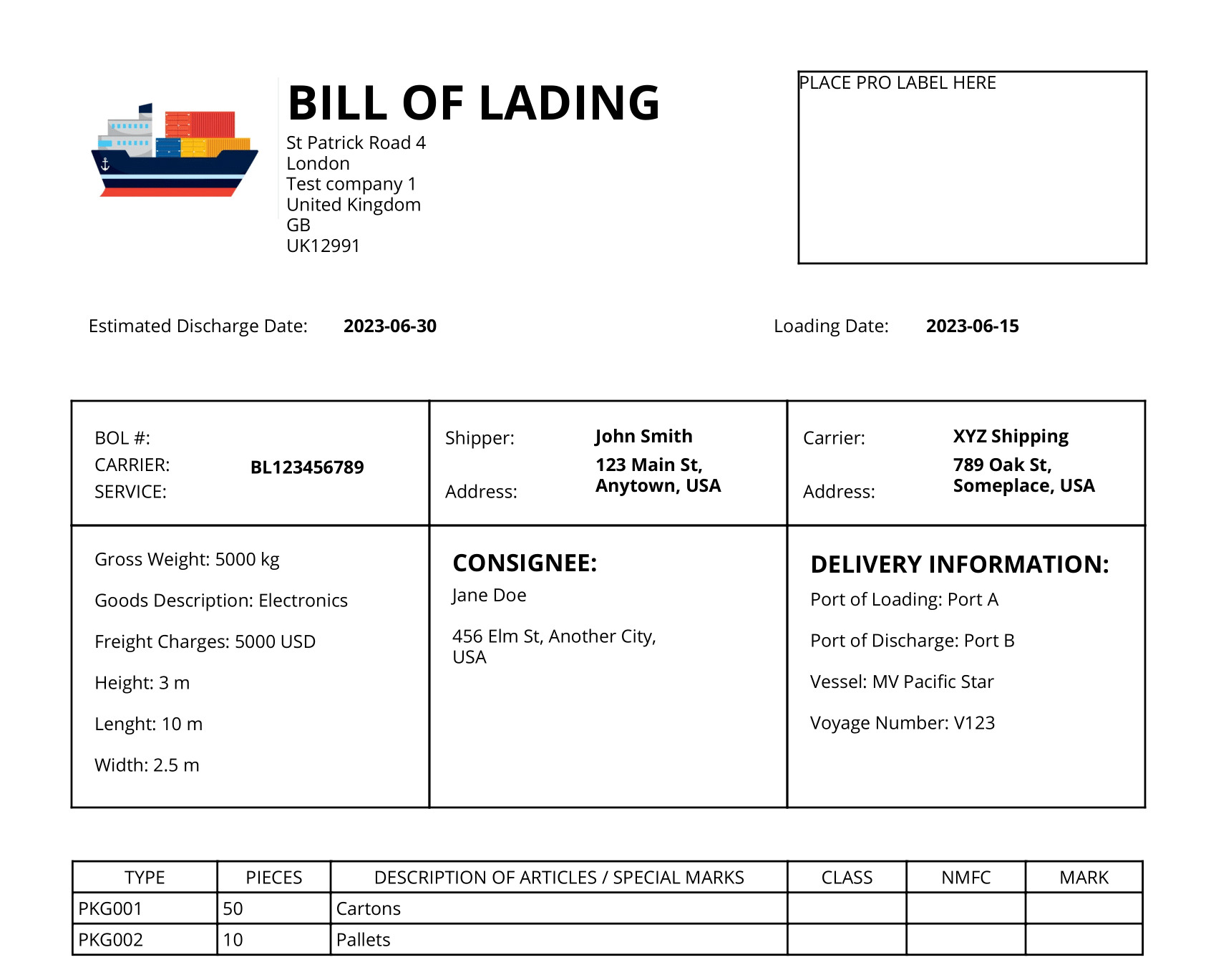The bill of lading contains essential information about the goods being shipped, such as the cargo’s type, quantity, condition, and destination. A bill of lading is a critical document in shipping, providing proof of shipment, ownership transfer, and essential information for logistics, customs, and legal purposes.
- Tailored Information: A customizable bill of lading allows businesses to include specific details relevant to their operations. This can include fields for additional references, special instructions, unique identifiers, or specific contractual terms. Customization ensures that the bill of lading captures all the necessary information required by the business and its stakeholders.
- Branding and Professionalism: Customizing the bill of lading with your company’s logo, colours, and branding elements adds a professional touch and reinforces brand identity. It creates a consistent visual representation of your business and enhances your overall professional image when dealing with customers, suppliers, and partners.
- Streamlined Processes: By customizing the bill of lading to align with your internal processes and systems, you can include fields or sections that automate data entry and calculations or trigger specific actions. This streamlines your workflow, reduces manual errors, and improves operational efficiency.
- Integration with Systems: Customizable bill of lading templates can be designed to integrate with your business systems, such as inventory management or accounting software. This enables seamless data transfer and enhances accuracy in recording and tracking shipments, reducing the need for manual data entry.
- Compliance and Documentation: Customized bill of lading templates can incorporate regulatory or industry-specific requirements. This ensures your business complies with applicable laws and regulations, avoiding potential penalties or delays. Customization also allows for standardized documentation across your organization, making managing and archiving records easier.
